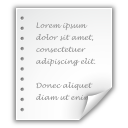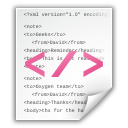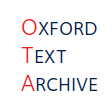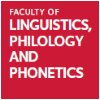THE TRAGEDIE OF ROMEO and IVLIET
| dc.contributor | Oxford Text Archive |
| dc.contributor.author | Shakespeare, William, 1564-1616 |
| dc.coverage.placeName | Oxford |
| dc.date.accessioned | 2018-06-14 |
| dc.date.accessioned | 2022-08-21T10:28:54Z |
| dc.date.available | 2022-08-21T10:28:54Z |
| dc.date.created | 1623 |
| dc.identifier | ota:5721 |
| dc.identifier.uri | http://hdl.handle.net/20.500.14106/5721 |
| dc.description.abstract | "One thousand copies of this facsimile have been printed"--verso of half t.p. Facsim. reprint of ed. published, London : printed by Issac Iaggard and Ed.[ward] Blount, 1623 with original t.p.: Mr. William Shakespeares comedies, histories, & tragedies Original colophon reads: Printed at the charges of W.[illiam] Iaggard, Ed.[ward] Blount, I.[ohn] Smithweeke [i.e. Smethwick], and W.[illiam] Aspley, 1623 Contents: The tempest. The two gentlemen of Verona. The merry wives of Windsor. Measvre, for measure. The comedie of errors. Much adoe about nothing. Loues labour's lost. A midsommer nights dreame. The merchant of Venice. As you like it. The taming of the shrew. All's well, that ends well. Twelfe night, or what you will. The winters tale. The life and death of King Iohn. The life and death of King Richard the second. The first part of Henry the fourth. The second part of Henry the fourth. The life of Henry the fift. The first part of Henry the sixt. The second part of Henry the sixt. The third part of Henry the sixt. The tragedy of Richard the third. The famous history of the life of King Henry the eight. The tragedie of Troylus and Cressida. The tragedy of Coriolanvs. The lamentable tragedy of Titus Andronicus. The tragedie of Romeo and Ivliet. The life of Tymon of Athens. The tragedie of Ivlivs Caesar. The tragedie of Macbeth. The tragedie of Hamlet, Prince of Denmarke. The tragedie of King Lear. The tragedie of Othello, the moore of Venice. The tragedie of Anthonie, and Cleopatra. The tragedie of Cymbeline |
| dc.format.medium | Digital bitstream |
| dc.format.mimetype | text/xml |
| dc.language | English |
| dc.language.iso | eng |
| dc.publisher | University of Oxford |
| dc.relation.ispartof | Oxford Text Archive Core Collection |
| dc.relation.replaces | https://hdl.handle.net/20.500.14106/0119 |
| dc.rights | Distributed by the University of Oxford under a Creative Commons Attribution-ShareAlike 3.0 Unported License |
| dc.rights.uri | http://creativecommons.org/licenses/by-sa/3.0/ |
| dc.rights.label | PUB |
| dc.subject.lcsh | Plays -- England -- 16th century |
| dc.subject.lcsh | Plays -- England -- 17th century |
| dc.subject.lcsh | Comedies -- England -- 16th century |
| dc.subject.lcsh | Comedies -- England -- 17th century |
| dc.subject.lcsh | Tragedies -- England -- 16th century |
| dc.subject.lcsh | Tragedies -- England -- 17th century |
| dc.title | THE TRAGEDIE OF ROMEO and IVLIET |
| dc.type | Text |
| has.files | yes |
| branding | Oxford Text Archive |
| files.size | 1273073 |
| files.count | 5 |
| otaterms.date.range | 1600-1699 |
This item is
Attribution-ShareAlike 3.0 Unported (CC BY-SA 3.0)
Publicly Available
and licensed under:Attribution-ShareAlike 3.0 Unported (CC BY-SA 3.0)
Files for this item
Download all local files for this item (1.21 MB)

- Name
- 5721.epub
- Size
- 116.35 KB
- Format
- EPUB
- Description
- Version of the work for e-book readers in the EPUB format

- Name
- 5721.html
- Size
- 248.07 KB
- Format
- HTML
- Description
- Version of the work for web browsers

- Name
- 5721.mobi
- Size
- 436.59 KB
- Format
- Mobipocket
- Description
- Version of the work for e-book readers in the Mobipocket format

- Name
- 5721.txt
- Size
- 126.26 KB
- Format
- Text file
- Description
- Version of the work in plain text with all tags and formatting information removed
THE TRAGEDIE OF ROMEO and IVLIET Actus Primus. Scoena Prima. Enter Sampson and Gregory, with Swords and Bucklers, of the House of Capulet. Gregory: A my word wee'l not carry coales. No, for then we should be Colliars. I mean, if we be in choller, wee'l draw. I , While you liue, draw your necke out o'th Collar. I strike quickly, being mou'd. But thou art not quickly mou'd to strike. A dog of the house of Mountague, moues me. To moue, is to stir: and to be valiant, is to stand: Therefore, if thou art mou'd, thou runst away. A dogge of that house shall moue me to stand. I will take the wall of any Man or Maid of Mountagues. That shewes thee a weake slaue, for the wea- kest goes to the wall. True, and therefore women being the weaker Vessels, are euer thrust to the wall: therefore I will push Mountagues men from the wall, and thrust his Maides to the wall. The Quarrell is betweene our Masters, and vs their men. 'Tis all one, I will shew my selfe a tyrant: when I haue fought with the men, I . . .

- Name
- 5721.xml
- Size
- 315.96 KB
- Format
- XML
- Description
- Version of the work in the original source TEI XML file




